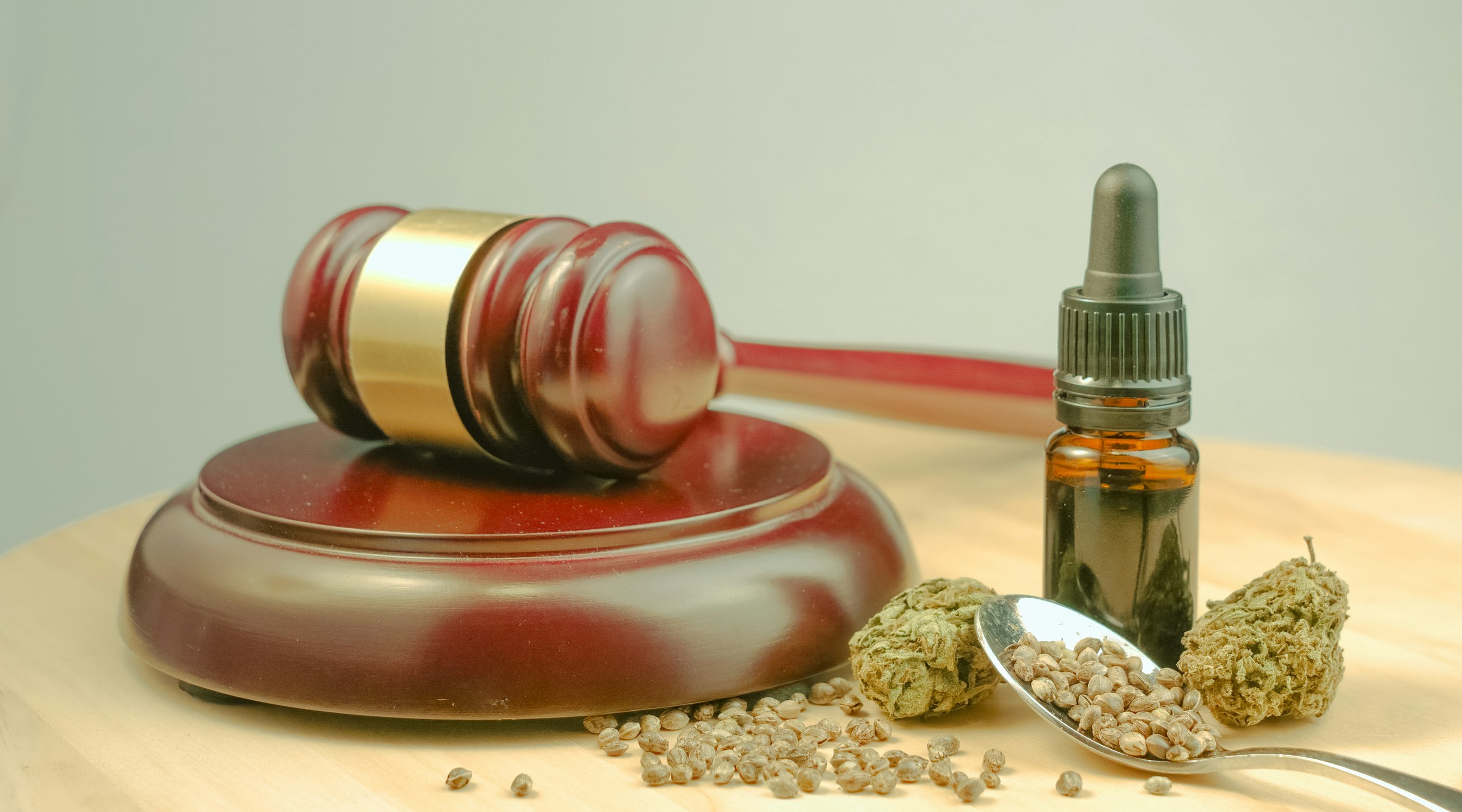A guide to cannabis oil classification UK
6 min read
Editorial Team
Contents
When most people hear the word ‘cannabis’ in the UK, their first instinct is to think of recreational cannabis. But, thanks to changes in the law regarding medical cannabis back in 2018, and the rise of ‘over the counter’ CBD options, there are now many other products with the word cannabis in them that enjoy vastly different legal statuses.
So, what are the differences, and how are these diverse types of cannabis products classified according to law?
Well, firstly, it’s important to note that recreational cannabis (also known as weed, puff, ganga, and green) is still illegal in this country. It is, in fact, classified as a Class B controlled drug under the Misuse of Drugs Act 1971.
However, it is also now perfectly legal in certain circumstances for qualified, specialist doctors to prescribe officially licensed cannabis as a medical product to patients that they believe will benefit from it. These products take the form of traditional cannabis and are often administered using hi-tech inhalation devices that require no tobacco.
In such situations, cannabis can enjoy legal status because, in 2018, the Advisory Council on the Misuse of Drugs (ACMD) agreed that cannabis-derived medicinal products that reached a required medical standard should no longer be subject to ‘Schedule 1’ of the Class B classification.
Instead, it could be re-classified and moved into Schedule 2 opening the way for easier and wider access to medical cannabis prescriptions and officially changing the legal status of cannabis in the UK.
So, what is cannabis oil?
One type of cannabis-derived medication on the market today is cannabis oil. This is a product made from the extracts of cannabis plants, which themselves produce more than 110 different types of substances known as ‘cannabinoids’. These cannabinoids each have different impacts on the body and are distributed to different concentrations in certain parts of a cannabis plant.
The most well-known of these cannabinoids are THC and CBD. And although they share some distinct similarities, they are two very different compounds. Essentially, CBD oil, which can be extracted from cannabis, is a non-intoxicating oil that’s been shown to have potential medical properties which may help to relieve pain, ease inflammation, and reduce anxiety. This is the ingredient in the cannabis plant that has allowed legal cannabis oil products to be created.
THC, on the other hand, is the psychotropic, intoxicating cannabinoid that gives recreational cannabis users their ‘high’. So, it’s very important to note that CBD oil products without ‘THC’ or with a very low THC content are not intended to deliver such a ‘high’. For this reason, low-THC, CBD oils are indeed perfectly legal for the consumer market, and have been since 2017 here in the UK. The law states that CBD oil must have a THC content no higher than 0.2% in order to be licensed and sold legally without a prescription.
This decision was made with the help of the nation's medicines regulator, the Medicines and Healthcare products Regulatory Agency (MHRA), in 2017. CBD oils with a higher THC content do exist but they are illegal without a prescription. You can find some frequently asked questions about cannabis-based products on the NHS website here.
Is cannabis oil the same as medical cannabis?
Cannabis oil and medical cannabis are markedly different products.
Cannabis oil is just on medical cannabis product type, but the term may also be used to describe CBD oil, which is legal for over-the-counter sale when it contains less than 0.2% THC.
Because CBD oil that’s available without a prescription is derived from the hemp plant, it is actually classified alongside food supplements. Medical cannabis, on the other hand, is grown and prepared to the most stringent standards to produce a medical-grade product that still may still have a THC component.
Is medical cannabis legal even though it contains THC?
In a word, ‘yes’. The legal status of medical cannabis in the UK changed in 2018 after a full governmental review concluded that specialist doctors should be legally allowed to issue prescriptions to patients who they decided could benefit from treatment with medical cannabis. This meant that they no longer needed to seek approval from expert panels in order to give their patients access to cannabis-based medicines.
This was a truly monumental change in the status of medical cannabis, which meant it could be taken seriously and properly regulated so that its full potential as a treatment could be explored without anybody having to worry about breaking the law.
Conclusion
Although recreational cannabis is still illegal, medical cannabis can be obtained legally via a qualified medical professional. Meanwhile, legal CBD oils, which fall more into the bracket of a health or food ‘supplement’, continue to be widely available.
Although recreational cannabis is still illegal, medical cannabis can be obtained legally via a qualified medical professional. Meanwhile, legal CBD oils, which fall more into the bracket of a health or food ‘supplement’, continue to be widely available.
Now that you know the basics of cannabis oil classification in the UK, it’s time to start exploring what options may be available to you or a loved one who could benefit from taking one of these products. Just remember, always check with your doctor or healthcare practitioner first before taking any kind of new supplement or therapeutic option.
The more informed and clued-up you can be about your personal options for using cannabis oil, the better decisions you will be able to make.
Releaf understands the importance of medical cannabis in treating various medical conditions. With our tailored monthly packages, specialist consultations for medical cannabis, and a unique medical cannabis card for protection, you can access the treatment you need without worrying about the stigma.
Share article
Did you like this article?
It is important to seek medical advice before starting any new treatments. The patient advisors at Releaf are available to provide expert advice and support. Alternatively, click here to book a consultation with one of our specialist doctors.
Elevate your wellness with medical cannabis
Get comprehensive care, convenience, and confidence with an all-in-one treatment plan.
Am I eligible?Authors
Editorial Team
Article written by the Releaf Editorial Team, a group of seasoned experts in cannabis healthcare, dedicated to enhancing awareness and accessibility in the field through their wealth of knowledge and experience.
meet our specialist
Editorial Policy
All of our articles are written by medical cannabis experts, guided by strict sourcing guidelines, and reference peer-reviewed studies and credible academic research. Our expert clinical team and compliance specialists provide valuable insights to ensure accuracy when required. Learn more in our editorial policy.
Need more help?











